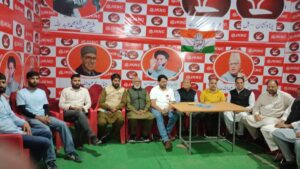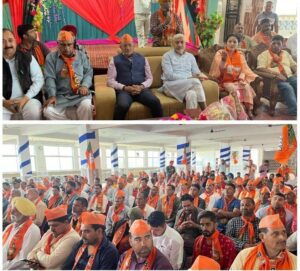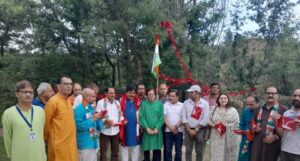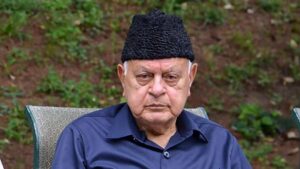Regional Institute of Education, Ajmer, holds 5 day workshop for DIET faculty
Prof Sansanwal emphasizes “SCERTs must adhere to their Research Mandate”
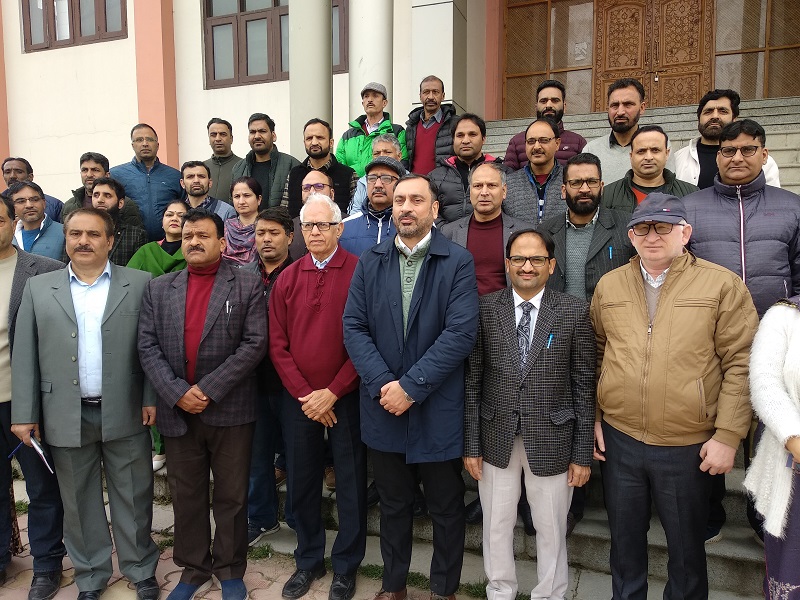
SRINAGAR, March 3: At the five day capacity building workshop on “Research Methodology And Data Analysis” organized by Regional Institute of Education (RIE), Ajmer, Professor D N Sansanwal, who retired as Head and Dean, Faculty of Education, Devi Ahilya University, Indore, said that State Council of Educational Research and Trainings (SCERTs) must adhere to their research mandate to make their existence felt.
“The SCERTs’ foundational tenet is research and if they don’t understand their responsibility and role, their very existence will be put into question,” he maintained.
Nearly, 30 members of DIET faculty from Jammu, Kashmir, and Ladakh took part in the workshop, where experts from RIE Ajmer led numerous sessions over the course of five day event to discuss why research is a key step in resolving issues that present themselves to us in a variety of ways.
“We are grateful for the support, as our request to RIE Ajmer to hold a workshop on research methods and data analysis was quickly granted,” said Dr Nazneen Mehraj, who is a senior academic officer associated with the Survey Division of the SCERT.
Pertinently, set up as Regional College of Education in 1963 under the aegis of National Council of Education Research and Training (NCERT), New Delhi, the institute was in 1995 renamed as Regional Institute of Education (RIE), Ajmer. It looks after the educational interests of the Northern Region comprising the states of Haryana, Himachal Pradesh, Punjab, Rajasthan, Uttarakhand, Uttar Pradesh, the National Capital Territory of Delhi and the Union Territories of Chandigarh, Jammu & Kashmir and Ladakh.
In addition to Professor Sansanwal, RIE Ajmer had brought in two specialists, Dr. Muzamil Hasan and Dr Sajid Jamal, who over the course of five day programme taught the participants various areas of research technique.
“Our objective is to improve the participants’ skills, processes, instincts, and resources so they can better prepare local staff for a variety of research-related tasks,” Dr. Muzamil said. “RIE Ajmer is prepared to offer any assistance to anyone who submits a workable research idea.”
Professor Sansanwal asked the participants to start with small projects in order for research to get going rather than embarking on lengthy and difficult ones. “Research, especially analytical studies, may produce more accurate findings with a smaller sample size because intensive measures can be taken to control all confounders, wherever they exist,” he said. “It can assist in building a solid foundation for organizations like SCERT to leave their imprint on the field of research.”
On day 2, while touring the facility, Director SCERT, Professor Parikhshat Singh Manhas, came by the workshop and praised SCERT for hosting such events.
“We take great pride in having experts from renowned institutions participate in our workshops,” Professor Manhas said. “It is our shared obligation to improve the caliber of our educational institutions and make them accessible for the good of our students.”
He hoped that SCERT, J&K, will emerge as one of the top institutes of the country in the time to come.


